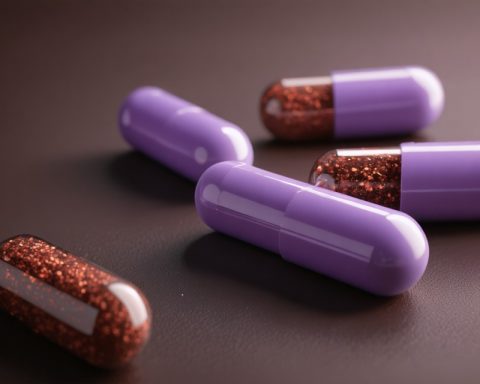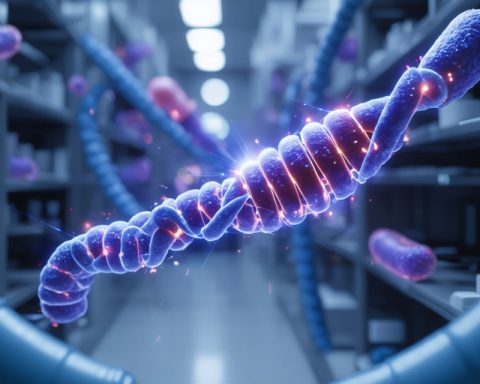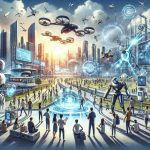Groundbreaking AI Tool Maps Your Location from Microbial Signatures
Innovative researchers at Lund University have introduced an advanced artificial intelligence tool that can pinpoint your past locations by analyzing the microbial communities on your body.
Key Developments
This sophisticated tool, named Microbiome Geographic Population Structure (mGPS), leverages the unique microbial “fingerprint” present on individuals to deduce their previous whereabouts. It relies on a comprehensive dataset of microbiomes gathered from various environments, including urban settings, soil, and marine ecosystems.
Remarkable Accuracy
The precision of this technology is striking; it accurately identified the urban origin of samples with a 92% success rate. Moreover, it showcased an impressive ability to distinguish between sites within the same city. For instance, it successfully differentiated between two Hong Kong subway stations a mere 172 meters apart.
Transformative Potential
This tool holds promise for revolutionizing our understanding of disease transmission by tracking the travel paths of microorganisms and identifying infection sources. The research team is keen on expanding the database to enhance the tool’s accuracy and broadening its applications across fields such as public health and urban planning.
Stay tuned for the future developments of this cutting-edge AI tool as researchers aim to harness its full potential to tackle health and environmental challenges.
Unveiling the Power of Microbiome Mapping: Tips, Life Hacks, and Fascinating Facts
The recent breakthroughs at Lund University surrounding the Microbiome Geographic Population Structure (mGPS) tool offer intriguing insights into how microbial signatures can tell stories about our past locations. Here’s a closer look at the practical applications, life hacks, and some fascinating tidbits to better understand this revolutionary technology.
1. Understanding Your Microbiome “Fingerprint”
Did you know that each of us carries a unique microbiome signature? This is akin to a microbial fingerprint that can provide information about where you’ve been based on the types of microbes you carry. Understanding your microbiome can offer insights not just into your health, but also your travel history and environments you’ve visited.
2. Enhancing Personal Health Monitoring
With tools like mGPS, individuals can potentially monitor how their environments affect their microbiome and, by extension, their health. Consider using personal microbiome testing kits to track how changes in your lifestyle or travel affect your body’s microbiome. Such proactive monitoring can help tailor diet and wellness habits to maintain optimal health.
3. Keeping Hygiene in Check
Given that the mGPS tool highlights how microbes transfer and settle on us, maintaining good hygiene becomes even more crucial. Regular handwashing and disinfection, particularly after visiting high-traffic areas, can help manage the microbial influence from these environments. This is not merely about avoiding pathogenic microbes but also managing beneficial microbiomes.
4. Fascinating Facts About Your Microbial Passengers
– Diverse Ecosystems: Our skin alone hosts thousands of species of bacteria. The diversity is so extensive that your left hand’s microbiome is potentially different from your right hand!
– Microbial Origins: Many microbes we carry are acquired from our mothers during birth and continue to evolve based on our interactions with the environment over our lifetime.
5. Urban Planning and Public Health Advancement
The mGPS tool could play a transformative role in urban planning. By understanding microbial flow through cities, urban planners could design layouts that minimize the spread of pathogens. From a public health perspective, tracking microbial signatures can lead to more effective disease containment strategies.
As the mGPS technology evolves, there are promising possibilities across various domains. From enhancing personal healthcare to transforming city designs, the potential applications are vast. Stay curious and informed as we continue to unravel the fascinating world of microbiomes, and consider checking expert resources such as lunds university or other reputable institutions to stay updated on further advancements in this field.








